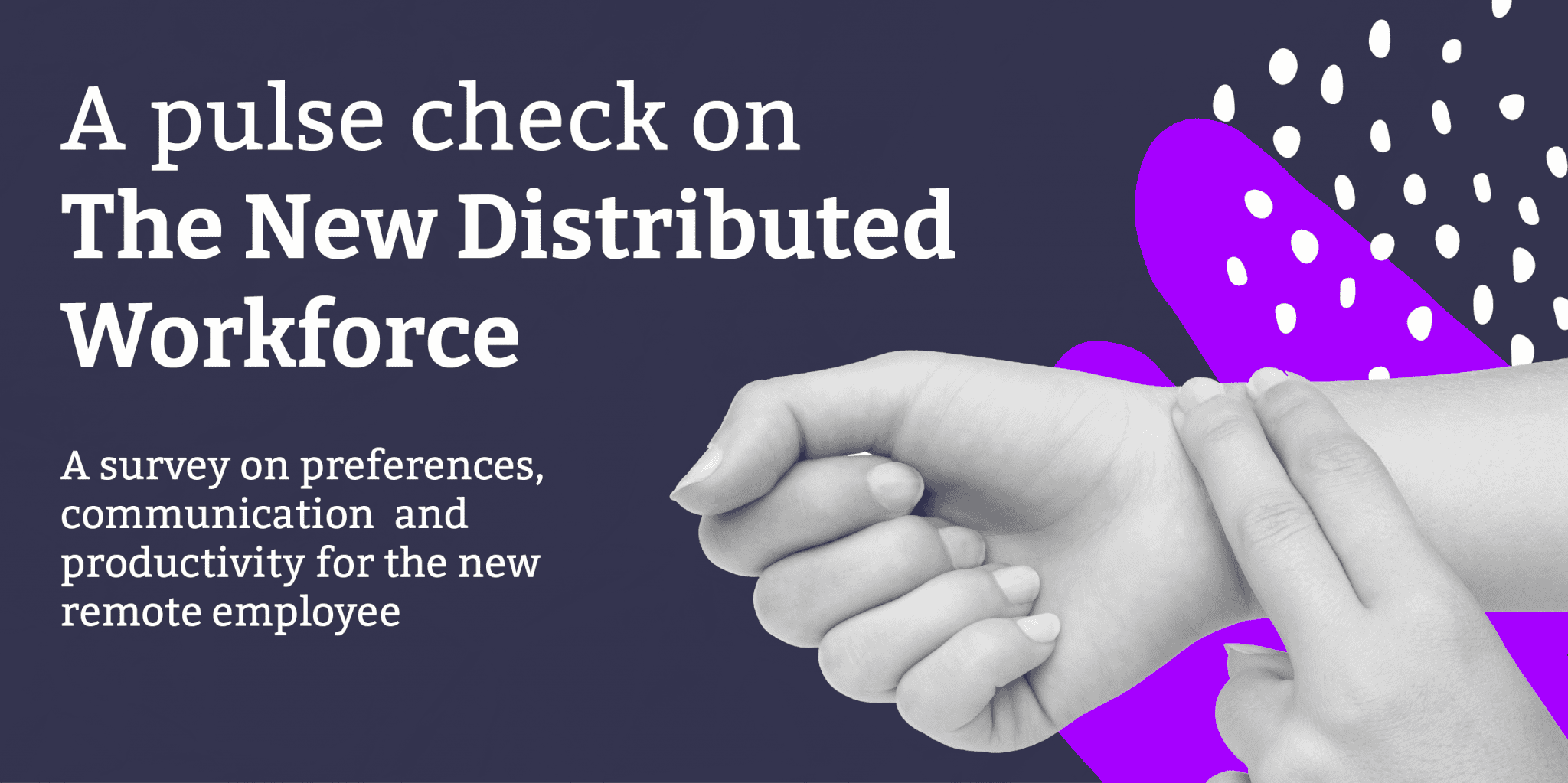The future of work and its implications for senior leaders

Anthony Cotter
Creative Director
7 Oct 2020


In this part of our series focusing on senior leadership, we help you make sense of the future of work and other emerging trends.
With all good marriages there are ups and downs, however the turmoil of 2020 has actually deepened the relationship between that of HR and IT in organizations.
The scramble to stay connected and to implement temporary solutions to stay operational was fast tracked by years. Many of these changes are here to stay.
HR professionals are now adept on many more items related to their technology platforms and likewise the role of IT fully embraces that of the employee experience and culture.
HR.com’s The State of Today’s HR Tech Stack 2020 shows a fascinating snapshot of where organizations are at with the platforms and applications that support the delivery of HR services, and the related employee value proposition.
Based on a survey of nearly 300 HR professionals, with Workvivo among the sponsors, the report shows that technology is clearly engrained into the HR function, and is generally making a positive difference.
- The majority reported that their HR tech stack increases efficiency (63%)
- Improves employee experience (57%)
- It’s clear that HR professionals need to be technologists,
- Heads of HR need to have a digital strategy
- HR functions need to be working closely with their friends in IT.
However, these figures also show there are a significant proportion of organizations which feel the need for improvement in their HR tech stack.

The next normal: distributed teams
Workvivo’s recent employee survey echoes the results found in similar surveys. Employees have really embraced remote working. Nearly 85% of participants feel more positive about remote working than they did when the pandemic started. And 52% said they would like to continue working from home permanently, while 36% want a mix of home and office.

The pandemic has accelerated what was already a growing trend. However, the rapid move to remote working caught many businesses by surprise. There was little time to plan, and systems were often set up haphazardly.
The key question senior leaders need to ask now is whether your company can support long-term remote working? And with some choosing to continue remote working while others return to the office, distributed teams will increasingly become the norm.
The future workforce is likely to look very different post-Covid.
Can your communications platforms cope with this hybrid workforce? And how will your managers develop a cohesive team culture?
The pandemic has certainly accelerated the need for digital communications and collaboration tools. And the companies that have adapted best have opted for integrated digital platforms.
These systems provide gateway access to online collaboration and employee-led communications and engagement. By connecting home workers with their office-based colleagues, integrated platforms tick all the boxes for the next normal.
Furthermore, managing distributed employees requires leaders to have different skillsets. Performance management, monitoring productivity, and internal communications will all be different. Now’s the time to upskill managers to ensure they have the necessary skills.
Workvivo client Cubic Telecom, for example, has developed a mental health first aid training program for all people managers. Cubic recognized that the isolation and loneliness remote workers often experience can affect employees’ wellbeing.
The program will ensure managers are better equipped to identify and manage mental health issues in their employees.
However, the good news is that distributed teams make it easier to recruit and retain the market’s best talent. You won’t need to restrict your search to only those in the local area or commuting distance. Instead, you can consider candidates from a much wider talent pool, including national or even international freelancers and contractors.
Action
- Review digital communication and collaboration platforms to ensure they are future-proofed.
- Upskill managers to equip them for the challenges of managing distributed teams.
- Use remote working and distributed teams as a recruitment tool.

Employee experience
Employees’ experience of work will be significantly different post-Covid. During the lockdown, employees became used to greater control over their schedules. Your workers are likely to have enjoyed the freedom and increased ability to self-manage.
What’s more, research tells us that remote workers are more productive. In Workvivo’s survey, more than 70% felt that they were more productive since starting to work from home.
Rather than focusing on time spent online or in the office, leaders need to use outputs to measure productivity. After all, it’s the end goal that’s important here.
Allowing all employees – whether remote or office-based – greater levels of self-management will pay dividends. It requires senior leaders to grow their collective organizational trust. The pandemic remote work experiment has, however, demonstrated this trust is not misplaced.
And for some employees, their jobs may have changed since the start of the pandemic. Redundancies, restructures, and new ways of working have changed roles and responsibilities.
Senior leaders need to ensure employees have the right tools, skills, and resources to succeed in their new roles.
In addition, staff want to feel the work they are doing is meaningful and part of a bigger picture.
Action
- Value staff as people and develop organizational trust.
- Ensure workers are equipped with the tools, knowledge, and resources needed for the next normal.
- Communicate consistently and clearly to underpin a shared vision and direction.

Company culture and executive communications
Developing a strong company culture will be more of a challenge in the next normal. But it’s not impossible. And with 77% of employees confirming that corporate culture is extremely important, it’s well worth investing the time and resources.
During the Covid crisis, workers’ appetite for regular, trusted information from employers has increased. Gallup recently undertook a survey of chief HR officers from more than 650 of the world’s largest companies. The survey found that senior leaders are communicating more than ever, with most providing weekly or even daily updates.
According to the research, executives are using a variety of channels and are tailoring their messages more to the recipient. Social media, text messages, instant messaging, and enterprise social networks are some of the platforms used.
As well as Covid-related operational updates, senior leaders are regularly communicating industry news. And they are also reinforcing messages around corporate values and culture.
The increased openness, transparency, and visibility of executives is a welcome bi-product of the pandemic. And it signals the way forward for senior leaders who want to nurture company culture in a distributed team operating model.
Action
- Develop visible, consistent, and regular executive communications.
- Consider using video as a way to get up close and personal with distributed teams.
- Use this enhanced visibility to reinforce and promote the company culture.
The future of work and senior leaders
It’s clear flexibility, agility, and above all, resilience will be the essential qualities for senior leaders in the future workplace.
The challenges senior leaders have faced over the last 6-9 months have been unprecedented. However, the biggest test is about to come as businesses strive to come back stronger in a vastly changed world.
And if you are looking for a communications and collaboration platform that supports workplace culture, then Workvivo could be the solution.
Designed to meet your workforce’s needs now and into the future, check it out and sign up for a demo.

